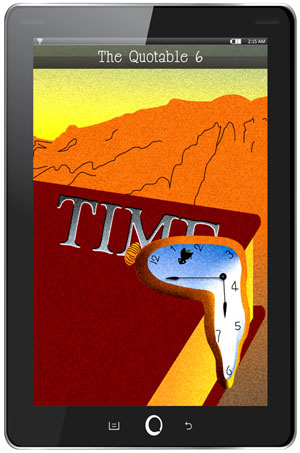You joined the army because you were above what you so eloquently referred to as ‘this shit.’ The term, in your angry adolescent hands, could have meant anything from being the quarterback of your school’s failing football team, to a fight with your girl, to an assignment for your science class. In general, it meant the town: four hundred people sticking their noses in your doings. It was enough to drive you crazy. And away.
You joined the army because you needed to escape, before you got sucked into a life of mining coal. Like hell you’re turning into your old man.
The army sent you to exotic places. Sent you into the thick of things, into the commotion, the excitement. Heroically charging into battle to fight the enemy, to save the oppressed, to protect your country. It was all you could have ever asked for.
Theoretically.
Declaring yourself above coal types and college, you scratched your name onto the form. You swore your oath. You trained. You were shipped off to Europe. And suddenly ‘this shit’ meant something completely different. It was something you were trapped in. ‘The Great War’, they called it. Hunkered down in muddy holes, shivering. Swollen feet jammed into heavy boots as the wool of your disintegrating uniform scraped against your cuts and bruises. Huddled together with your fellow soldiers, trying anything you could to stay warm.
Great, indeed.
Battles were dreaded, but a change. An excuse to run. To scream. To force out any energy you had in hopes of collapsing into a dreamless sleep that night. The nights you went to sleep without this exorcism, your mind raced. Careened and swerved through every hellish experience you’d ever had. There was no need for your dreams to twist and darken into nightmares. Your life already was one, long and waking and so terribly real, and it only worsened when you fell asleep. Because of this, exhaustion and you had become good friends.
That was the beginning of the end: just another attempt at exhaustion. You can’t quite remember when it was, or where. War was dull and repetitive, blurring together to become a haze of gunfire and miserable weather. You charged forward, only to meet a searing pain in your middle.
You were shot in the abdomen. The bullet didn’t pierce your stomach, but it came damn close. The doctor said it hit your liver. He didn’t need to tell you this, though. You could tell from the greenish-yellow bile mixing with the blood that was flowing freely from the gasping hole in your gut.
You were dragged onto a stretcher and taken to the hospital. You don’t remember much of the ride. You floated in and out of consciousness. One minute you were staring up at the rusting ceiling of the truck, rocks kicked up by the tires hitting its metal sides. The next, you were seven years old and back home. Thanksgiving. You’re in the kitchen, watching your mother knead bread. She is covered in flour. She stops and gives you a hug and a kiss. When you pull away, your middle is dusted with white. You both laugh.
When you wake, your middle is white again. Your hospital shirt is open and you can see a bandage is wrapped around your belly. You look around. On your left is a sleeping head wound, bandage covering his one eye and a stitched-up cut above his other. His breathing is labored. You’ll be surprised if he lasts the night. Funny breathers usually don’t. Or so you’ve heard.
To the right of you, there’s a jittery sort of guy. His arm is wrapped up, but other than that he seems in perfect health. Physically, at least. That jitteriness… that’s a newly acquired trait.
Shell shock is a bitch. Formerly brave men—brave to the point of suicidal, you’ve seen—reduced to quibbling infants. That was probably why this guy was hospitalized. And you feel bad for him, because even if he recuperated to the point of functioning in normal society, he would be shipped back. And then he would crumble all over again. Thank God it wasn’t you.
A feeling of guilt washes over you. It could just as easily have been. You could be in his place, or in the place of any other poor shellshocked bastard, pissing your pants at the sound of a sneeze. How did you escape that fate?
Luck?
A nurse walks into the room, head down. MacDonald, you think her name is. Not that it matters. When it comes to nurses, they are all starch attitudes in starched hats. Another nurse puts a hand on MacDonald’s shoulder, and you catch a glimpse of her face: red and blotchy with bloodshot eyes. You know that look too well: she’s been crying. Nurse MacDonald smiles gratefully at the other nurse, then goes about her work.
She’s by your bed now, refreshing your glass of water. You’ve seen that face a thousand times as you marched into town upon town: mothers mourning sons, wives mourning husbands, children mourning fathers. You never said anything as you passed them. You tried not to even look at them. You just kept trudging forward.
Those sad faces terrified you. Because when you closed your eyes, they were all you saw: the faces of the dying, of the wounded, of the ones you couldn’t save, the ones you should have tried harder to help. More and more of them until they overtook your field of vision. You shook your head to clear them, but they never went away. On especially bad nights, when you didn’t run hard enough or scream loud enough, you would claw at them, try to shove them away, out of your memory, until finally, you would find the one that twisted your guts and left you cold with fear: your mother’s.
You want to—feel compelled to say something now, something comforting. Your mind draws a blank. Somehow “I’m sorry” doesn’t seem enough. Two words cannot patch such a wound.
I’m sorry I’m alive and whoever you lost is not.
I’m sorry you have to know this pain.
I’m sorry my luck was better than his.
“I’m sorry,” you say. She looks at you, shocked. But then, slowly, her expression melts into one of gratefulness.
“Thank you,” she says softly.
Two words cannot patch such a wound. But nothing heals so quickly. Bandages and stitches are just a stopgap until your body heals itself. Kind words, you think, may be the soul’s equivalent.
—
Anna Piaia is a lover of both words and history. She lives in Philadelphia, where both are plentiful.










